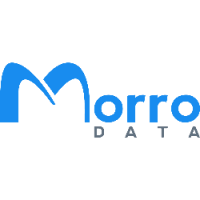4 Reasons Why Your Business Should Move to the Cloud
4 Reasons Why You Should Move File Server to Cloud
Why Your Business Should Migrate to the Cloud
For years, network attached storage (NAS) devices have been the go-to solution for primary storage needs for small and midsized businesses. But times are changing. Companies are realizing that keeping their business-critical data safe using legacy hardware-based NAS systems is expensive from both a CAPEX and an OPEX perspective. Also, they’re notoriously prone to failures, leaving your business-critical data at risk.
For businesses with multiple office locations, having siloed hardware-based NAS as your primary storage makes matters even worse. With legacy NAS devices, each office essentially acts as its own data store. This makes file sharing cumbersome and increases the potential for data loss, due to the lack of a centralized file system or IT control. Multiple offices also increase IT overhead and require remote access for management with each office NAS managed as a separate instance.
1. Improving Scalability
The cloud provides a robust infrastructure that offers scalability and durability. Hybrid cloud storage also simplifies multi-office file sync to reduce risk and maximize cost efficiency, while delivering an extra level of physical safety since it’s not susceptible to damage like a legacy NAS is. With this in mind, it’s time for you to consider the cloud for your primary storage needs. Morro Data CloudNAS employs a NAS-like user interface and delivers hybrid cloud storage at line speeds, evening the playing field between NAS and cloud. Morro Data CloudNAS provides a centralized single pane of glass for system-wide management of the whole file system, all device configurations, and all user permissions.
2. Lower Total Cost of Ownership
There are multiple components to the cost of legacy hardware-based storage. Obviously, you need to buy the NAS device itself, but then you have to purchase the physical disks, taking care to purchase disks that are large enough to handle your current needs, as well as projected data growth over the next few years. You also need to purchase a couple of spares to prevent a simple disk failure from leading to catastrophic data loss.
But the additional costs that many people forget to account for are the operating costs, the costs of a second NAS that is located off-site to protect against catastrophic data loss, plus the cost of the replication software, itself. Offsite backup is essential since the hardware is also susceptible to physical damage, theft, and site-wide natural disasters.
All told, our analysis showed that legacy NAS had a 3X higher TCO than using CloudNAS for the same amount of storage over the three-year lifespan of the typical NAS device.
3. Significant Cost Savings
One of the major downfalls of having a hardware-based NAS is that the amount of space on the disks is finite, so if your data grows beyond the capacity on the disks, you have to buy new, larger disks and rebuild the array. In addition to the pain and time involved in such a task, it also adds a great deal of expense – especially considering that for a 4-bay NAS, you’re likely to have to purchase as many as 12 disks (4 to populate the NAS, 2 spares, and 6 more to populate and have spares for the second, off-site NAS). That adds up!
So if your storage needs grow by only 50 percent, our analysis showed that using a legacy NAS would cost 4X more than scaling by the same amount using CloudNAS. And if you have multiple locations, the cost of adding storage at each of those locations would be nearly 5X more with a legacy NAS than it would be with CloudNAS.
4. Greater Reliability
Finally, let’s face it, none of us would use replication, redundancy, or any other sort of protection unless we: a) highly value our data; and b) believe that there’s a strong chance we can lose it permanently if we don’t take measures to protect it. And anybody who’s been in storage for any period of time knows that failures do happen – and unfortunately, more often than we care to know. In fact, in our 9TB example above, with a legacy NAS there’s nearly a 62 percent chance that the data will suffer an unrecoverable read error (URE). In contrast, CloudNAS delivers 99.999999% (eight 9’s) availability to keep your data safe, regardless of how much you have stored.
Cloud File Storage: Access Your Files Anywhere with Internet Connection
Cloud file storage is a type of data storage service where files are stored on remote servers that can be accessed via the internet. Instead of storing files locally on a computer or other external storage device, users can upload files to cloud file servers and access them from anywhere with an internet connection.
Efficient File Synchronization for Remote Teams: Hybrid Cloud File Server
Morro Data’s Cache & Sync technology effectively solves these problems by synchronizing the files from multiple locations in real-time. This enables users to access their data from any location without the need for VPN or third-party sync software. Users from every location simply access their files as if they were on a single server. And it’s not a bandwidth hog either. The full files are stored in the cloud, and only the metadata is sent to every location. This enables every file to be seen by everybody, but they only download what they actually need. And Morro Data supports application-level file locking across sites to avoid version control issues. Visit here to learn more.

Experience Seamless File Access with Anywhere Operation Strategy
An increasing number of companies shifted to long-term work from home and revealed related policy for anywhere operations (read an article from flexjobs.com). Businesses need to empower teams to work collaboratively during and after the pandemic. CacheDrive can be deployed on-prem, in cloud, and even at home. With CacheDrive at home, employees can build in-house offices and boost remote work productivity.
